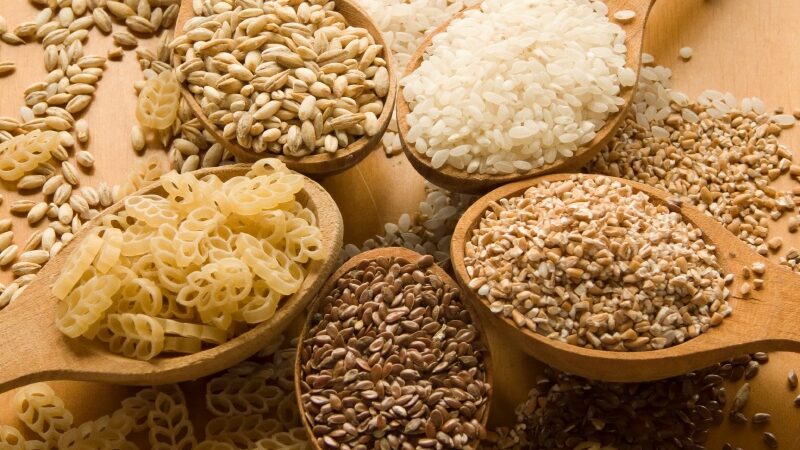
SHA Magazine Be SHA
Dietary recommendations to Hypothyroidism and Hyperthyroidism
DIETARY RECOMMENDATIONS TO HYPOTHYROIDISM
Hypothyroidism: It is a common endocrine disorder in which the thyroid gland does not produce enough thyroid hormone. It can cause a number of symptoms, such as tiredness, poor ability to tolerate cold, and weight gain.
AVOID
– A sugary diet, caffeine and refined carbohydrates. Such foods can burn the thyroid and destabilize your blood sugar. Reducing or even eliminating these products can minize an underactive thyroid.
– Energy bars, soy products and GMO foods, as they may hinder cell receptors and disrupt feedback system in your hormonal or endocrine system. Miso or tamari are exceptions as they have been fermented for 1 or 2 years.
– Gluten. Gluten is compound of glutein and gliadin proteins. Gliadin’s molecular structure is similar to the thyroid gland, so when the inmune system tags it for destruction not only destroys the protein gliadin but also attacks the thyroid tissue affecting the secretion of the thyroid hormone. The gluten from refined flour is much worse than gluten coming from natural sources as whole barley or oats.
– Any inflammatory food that trigger autoimmune responses. It is specific for each person. You will know which ones through a intolerance food test.
INCLUDE
– Whole-grain-based carbohydrates and non-starchy vegetables, as they provide energy with no inflammatory or autoinmune responses.
– Protein rich foods as fish, legumes, eggs (1 or 2 per week), quinoa, nuts and nut’s butters. Protein transports thyroid hormone throughout your body.
– Healthy fat foods as oily fish, flax seeds, extra virgIn olive oil, avocado (no too much in winter or cold weather, more if you live in a tropical area).
– Enough nutrients. Having inadequate supply of nutrients in the body can make thyroid symptoms even worse, as the inmune system becomes compromised.
DIETARY RECOMMENDATIONS TO HYPERTHYROIDISM
Hyperthyroidism (overactive thyroid) is a condition in which your thyroid gland produces too much of the hormone thyroxine. Hyperthyroidism can accelerate your body’s metabolism significantly, causing sudden weight loss, a rapid or irregular heartbeat, sweating, and nervousness or irritability.
AVOID
– Too much seaweeds. We can find hiziki, wakame, arame, kombu and others seaweeds. They are very healthy because of minerals but they content iodine as well. Too much iodine could make the hyperthyroidism worse. For this reason iodized sea salt must be avoided.
– Trans fats or hydrogenated vegetable oil. It is in commercially made cookies, crackers, doughnuts, margarines. If you avoid them hyperthyroidism symptoms will be reduced.
– Potencial allergens, such as dairy products, soy, corn and chemical food additives.
– Sugar, caffeine and refined carbohydrates, as we said with hypothyrodism. Try the whole version, eating grains as brown rice, quinoa or buckwheat.
INCLUDE
– Cruciferous vegetables like cabbage, broccoli, and kale. They contain goitrogens that block the thyroid hormone production. They need to be raw or slightly cooked (steamed or blanched). Millet, the whole grain, is very rich in goitrogens as well.
– Calcium rich foods as almonds, parsley or fresh turnip. It will prevent osteoporosis, something that is common in cases of hyperthyroidism.
– Some root vegetables like rutabagas and turnips contain substances called thioglucosides that inhibit the absorption of iodine and help people with overactive thyroid.
– Flax seeds because of its content in omega 3 fatty acids. They are important for normal function of the thyroid gland and therefore should be included in the diet for hyperthyroidism. Grind them just before eating to use all their benefits.
– Lemon balm. This herb helps normalize an overactive thyroid. Lemon balm blocks activity of the antibodies that stimulate the thyroid gland and restores your thyroid activity to a healthy level.
– Blugeweed herb that reduces the amount of hormone produced by the thyroid. Pour boiling water into a cup with half teaspoon of blugweed and let it steep for two minutes. Strain and drink warm.





